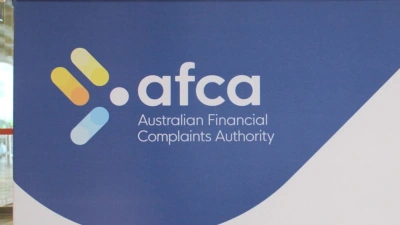Tax deductible advice ‘a step in the right direction’



With an Australian Tax Office (ATO) review underway to make financial advice tax deductible, Tangelo Advice Consulting’s Conrad Travers has reiterated why this would be a positive step forward for the industry.
Last year, the ATO agreed to reissue guidance on whether financial advice could be tax deductible, indicating it could be released by mid-2023.
Though Travers, who had been involved in the ATO’s review and update of TD95/60 along with Deloitte legal practitioner director James Alsop, couldn’t offer explicit details on the review, he said: “We are really hopeful that a good portion of ongoing fees will be tax deductible as a result of that efficacy”.
“We feel like this is a really strong step in the right direction, and we're going to keep advocating on your behalf,” he told audience members at the 2023 United Association Roadshow.
The 1995 laws had considered the difference between upfront fees paid for an investment plan and ongoing fees paid on an investment portfolio.
The Financial Advice Association of Australia (FAAA) also reaffirmed its position to advocate for full deductibility of advice fees moving forward to address accessibility and affordability issues.
The Financial Planning Association of Australia (FPA), prior to merging with the Association of Financial Advisers (AFA), had pushed for advice to have tax-deductible status in its 2023-24 pre-Budget submission.
Travers noted that confusion remained around the current tax deductibility rules and how it applied to advice.
According to Alsop, the general deductibility laws stated that where you incur expenditure to the extent that it was incurred in gaining or producing assessable income, it could be deductible.
“The extent that the expenditure is capital or capital in nature and gives rise to some sort of enduring benefit, it's generally taken not to be deductible under this provision,” he explained.
The fee for drawing up an investment plan would not be deductible under current law, as it was seen as capital or capital in nature.
“Interest on an investment loan would be deductible under this provision, with interest being a charge incurred on the loan in gaining and producing that income.”
The cost of managing one’s tax affairs was deductible, which could include the tax advice a client received from a financial adviser.
However, ongoing fees for the periodic reviews of investment performance were deductible under section 8-1.
Travers described that the distinction between upfront and ongoing advice fees were unhelpful and out-of-date.
“The fee charged to the client is a continuum and is a conversation between the adviser and the client about how they want to fund the advice, not so much a plan fee or an investment that occurs at a later date,” he said.
The director reiterated the economic benefits of more Australians receiving advice alongside tax deductibility, which would lead to less household debt and smarter financial decisions.
Recommended for you
ASIC’s court case with Interprac is causing advisers to explore the possibility of self-licensing, according to My Dealer Services, as they observe the reputational damage it can bring to a practice.
AZ NGA has entered a strategic partnership with a Sydney advice firm with $600 million in assets under advice to support its succession plans and future growth.
With complaints on the rise and an expanded jurisdiction, the Australian Financial Complaints Authority is on the hunt for four C-suite roles, three of which are newly-created positions.
Ahead of the 1 January 2026 education deadline for advisers, ASIC has issued its ‘final warning’ to the industry, reporting that more than 2,300 relevant providers could be on their way out.











